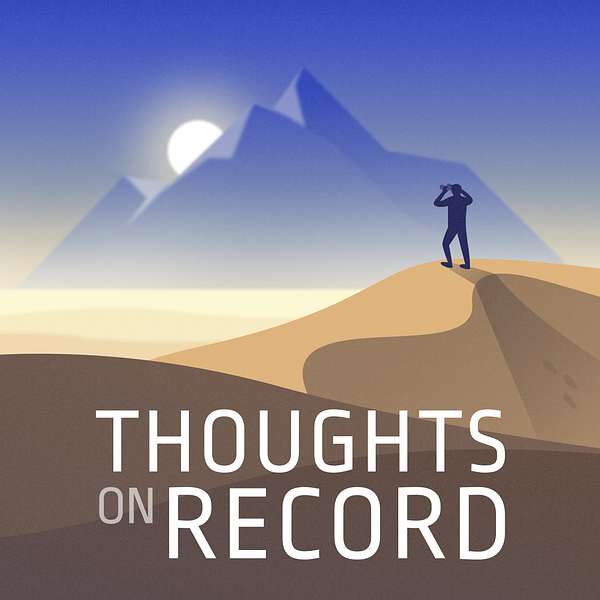
Thoughts on Record: Podcast of the Ottawa Institute of Cognitive Behavioural Therapy
Thoughts on Record is the podcast of the Ottawa Institute of Cognitive Behavioural Therapy (OICBT) located in Ottawa, Ontario, Canada. Each week we explore topics relevant to clinicians and mental health consumers from a cognitive behavioural perspective; however, if you’re generally interested in psychology, psychotherapy, evolutionary psychology, mental health, the brain, dynamics of human behaviour, creativity, wellness & performance then this podcast will certainly be of interest to you. Thoughts on Record is hosted by OICBT clinical psychologist Dr. Pete Kelly, C. Psych. Dr. Kelly is a Clinical Professor in the School of Psychology at the University of Ottawa and Adjunct Research Professor in the Department of Neuroscience at Carleton University. In addition to his clinical work, Dr. Kelly is actively involved in directing speciality programming at OICBT, teaching and supervision, providing workshops to mental health professionals and is a frequent speaker to organizations around the impact of stress on well-being. Email the show: oicbtpodcast@gmail.com. You can visit the OICBT at www.ottawacbt.ca. Original theme music courtesy of OPK5, outro music courtesy of Baldhero & Van Whelan https://baldherovanwhelan.bandcamp.com
Thoughts on Record: Podcast of the Ottawa Institute of Cognitive Behavioural Therapy
Dr. Joe Pierre - Why We Believe What Isn’t True
Comments or feedback? Send us a text!
In this episode, I’m joined by Dr. Joe Pierre, psychiatrist and author of False, to explore why people believe things that aren’t true—and why challenging those beliefs is rarely as simple as presenting the facts. Drawing from research in psychiatry, cognitive science, and social psychology, Dr. Pierre unpacks the emotional, identity-based, and relational roots of misinformation and conspiratorial thinking. Whether you’re a clinician, educator, or simply someone trying to make sense of our “post-truth” era, this conversation offers an evidence-based look at the psychology behind false beliefs. In this conversation we discuss:
- Why smart people believe irrational things
- The emotional and identity functions of conspiracy theories
- How misinformation spreads—and why it's so sticky
- The limits of fact-checking and logic-based persuasion
- The "prognosis" for someone who believes in conspiracy theories
- The role of mental illness in extreme beliefs (and where the line is)
- Online echo chambers, tribalism, and distrust in institutions
- The psychological appeal of certainty in uncertain times
- Strategies for promoting critical thinking and intellectual humility
Bio: Joe Pierre, MD, is a clinical professor in the Department of Psychiatry and Biobehavioral Sciences at the David Geffen School of Medicine at UCLA. With a background in both molecular biology and psychology from MIT and medical training at UCLA, Dr. Pierre’s career has focused on severe mental illness, particularly psychotic disorders. In addition to his clinical work, he’s a prolific writer and commentator on the psychology of belief, delusion, and misinformation. His Psych Unseen column for Psychology Today explores the intersection of psychiatry, media, and culture. False is his definitive exploration of why we believe things that aren’t true, and what that means for our mental health and collective future.
psychologytoday.com/us/blog/psych-unseen
@psychunseen